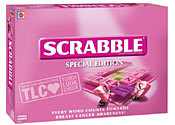- In the first phase, players are randomly given properties by the roll of the dice. It is unusual that you should not buy a property on which you land, so everyone generally buys everything they land on. (It's possible that, at some point, your opponents have too little money, in which case it may be worth auctioning the property off and buying it for less (just enough to outbid your opponents); I suspect that this is a rare occurrence.)
- In the second phase, players trade properties in order to accumulate monopolies. It is unusual that you receive a monopoly from the first phase through random dice rolling (in a four player game); if you do, you already have a huge advantage. Trading takes some skill, but not a whole lot of skill if you know the actual values and expected ROI of the monopolies. Still, the negotiation can give you a leg up in the next phases.
- In the third phase, players build houses and hotels on their monopolies. It is known that the the sweet spot is three houses, both because of the large rent leap from two to three houses and because of the limitation of houses available to build during the game. The skill in this phase is in managing your cash flow; if you have a row of opponent properties in front of you, you must keep your cash to avoid mortgaging properties. There is a bit of skill in the odds calculation here, but not much.
- In the last phase of the game, players roll the dice repeatedly until all players but one are eliminated from the game. There are - essentially - no interesting decisions in this phase.
In poker, you may have a hand that wins 16.2% of the time and your opponent a hand that wins 12.8% of the time. There is much more left to the game. You don't know what your opponent holds in his hand. You're not playing only against the system, for which the percentage is known, you're also playing against your opponent. You have to play not only the odds of your hand and what you might draw, but also the style of your opponent, a never-ending continuous assessment that continues to challenge right up until the cards are revealed. He might bluff. He might fold. He might call or raise. You only have clues as to the value in his hand, and therefore how to evaluate your own. The power of the cards plays only one part of the game.
Compare this to Monopoly. When the fourth phase is reached, players simply roll and roll and roll until one of them wins. There is nothing left to play; all information is open, there are no more properties or houses to buy, no more resource management, no hidden values to assess. As long as the percentages are close, any property on which you have three houses or more is going to kill or nearly kill you if you land on it. Additional damage is not that relevant. If you have only $50, you are just as dead landing on a property that costs $600 as one that costs $900 or $75.
In Monopoly, the percentages for win/loss in phase four are going to be a few points: 12% vs 16% or something like that. First one to roll badly loses.
Gamewise, there is no real favorite, no unexpected winner or loser, no underdog. On any particular roll, however, the odds will vary wildly. You might be entering at a long stretch of properties owned by an opponent. On this particular roll, your odds of surviving might be 60 to 12.5, in which case survival is a win for the underdog. This is the thrill of gambling; however it is the "low" sort of gambling that allows no choices, not even on whom or how much to bet. The game state is set, you're 100% in and you simply await the outcome. You can't fold and save your money for the next game, or bluff your opponent into not charging rent. You can't bet on another player.
That's why Monopoly ultimately fails as an interesting game, when compared to other luck heavy games such as poker.

 Top events in the world of mainstream board and card games, as I see it:
Top events in the world of mainstream board and card games, as I see it:

